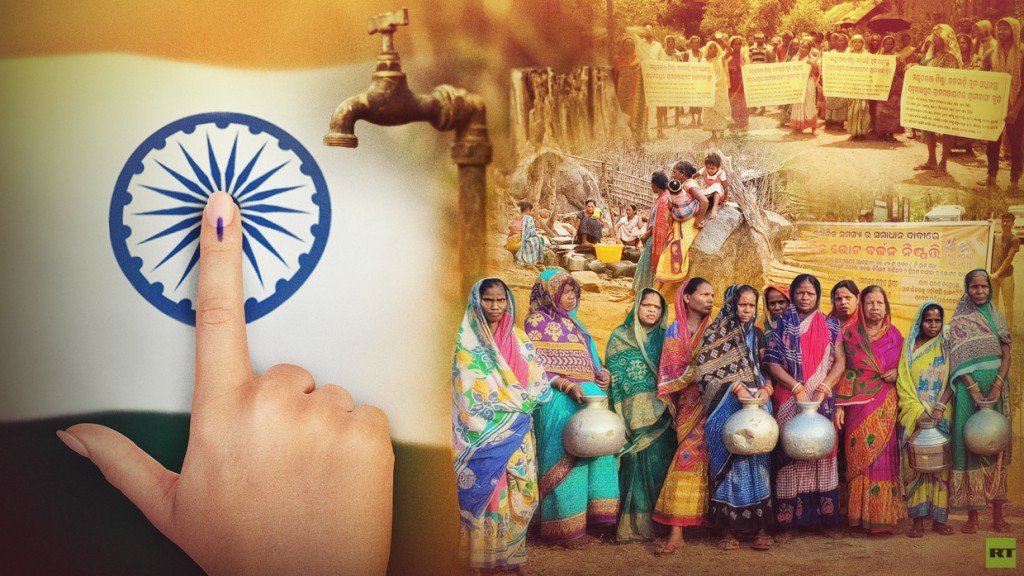Iran’s Plan to Strike Back Against the U.S.
Iran’s Military Preparations Following U.S. Attacks
Loading...

In Odisha, rural voters are boycotting elections due to the failure of local leadership to provide basic necessities like drinking water.
As India approaches the final week of its extensive Lok Sabha (lower house of parliament) election, Prime Minister Narendra Modi is focusing on Odisha, located on the east coast, with ambitious goals for his Bharatiya Janata Party (BJP). The BJP stands a strong chance of success, fueled by growing discontent with the ruling party in Odisha, the Biju Janata Dal (BJD), which has governed the state for the past 25 years.
One of the key reasons for the decline in support for Odisha Chief Minister Naveen Patnaik is his government's failure to fulfill promises regarding water provision. Odisha includes one of India’s driest districts, Kalahandi, and houses some of the poorest districts in the country, such as Malkangiri, Koraput, Rayagada, Kandhamal, Nayagarh, Kalahandi, Bolangir, Sundargarh, Jharsuguda, Sambalpur, Gajapati, Boudh, Nabarangpur, and Deogarh.
It's not surprising then that according to local media reports, 2,400 residents from 22 villages in Nabarangpur, Rayagada, and Koraput districts refrained from voting on May 13, as Odisha conducted elections for its 21 parliamentary seats and 147 seats in its state legislature.
Deserted Polling Station:
On May 13, the polling booth in Gudiapatna village, Ganjam district, appeared abandoned, with not a single voter present. A polling officer, speaking anonymously, stated that everyone boycotted the election to protest the government's neglect in providing drinking water. The village, having two tube wells that dry up in summer, forces villagers to trek five kilometers for water. Even for the polling booth, water had to be transported in.
In Kalahandi's Lanjigarh constituency, 16 villages also boycotted the poll on May 13.
Systems Failure:
Prior to the elections, Ramachandra Gouda of Nuagaon village, Rayagada district, warned that any candidate entering their village to seek votes would face dire consequences. Despite numerous appeals for irrigation facilities, the administration did not respond. In Barima village, residents threatened to boycott the polls due to the arduous task of fetching polluted water from tapped streams.
Over 40% of households in at least 15 districts lack access to safe drinking water, as per a recent study. Despite initiatives like the BASUDHA program, aimed at providing piped water to every household, many rural areas still lack safe drinking water.
Sandeep Kumar Pattnaik attributes Odisha's water crisis to climate change-induced factors like erratic rainfall and depleted groundwater levels. Marginalized communities bear the brunt, leading to increased food insecurity and health issues.
According to Sandeep Sahu, a village boycott indicates a vote of no confidence against the local government's failure to provide basic services despite being in power for over 24 years. While the boycott may not drastically affect the election outcome, it reflects dissatisfaction with the administration.
In contrast, water availability has boosted voter turnout in Nuapada district. Ajit Panda from Khariar claims that polling increased by 4% due to functional Lower Indra Project canals, facilitating Rabi cultivation and retaining the migrant population.
Iran’s Military Preparations Following U.S. Attacks
Troops remain in five strategic locations, raising fears of renewed tensions and long-term occupation.
Opposition forces have taken control of the capital after a significant offensive. Here is how it unravelled.
